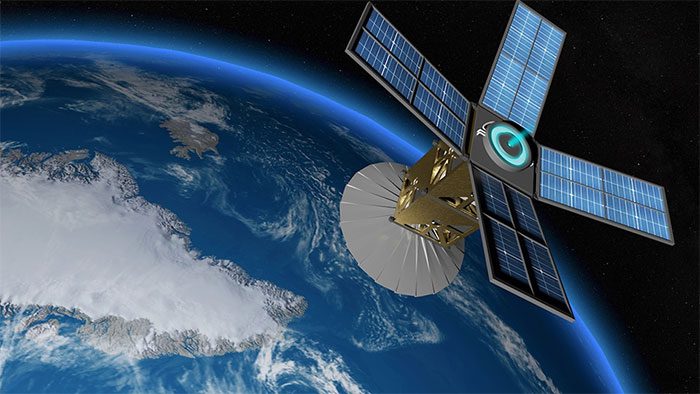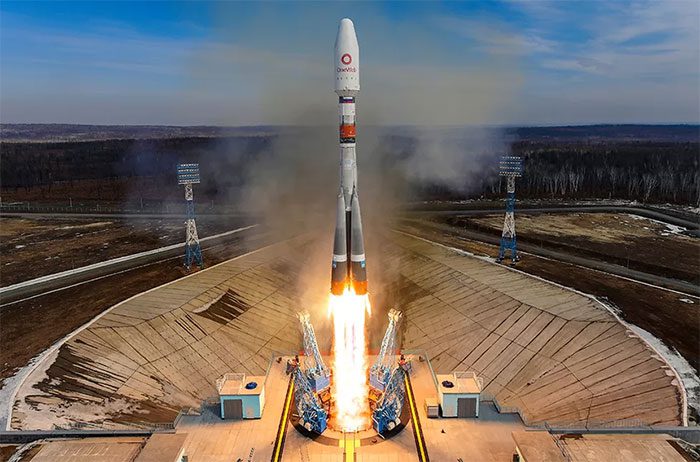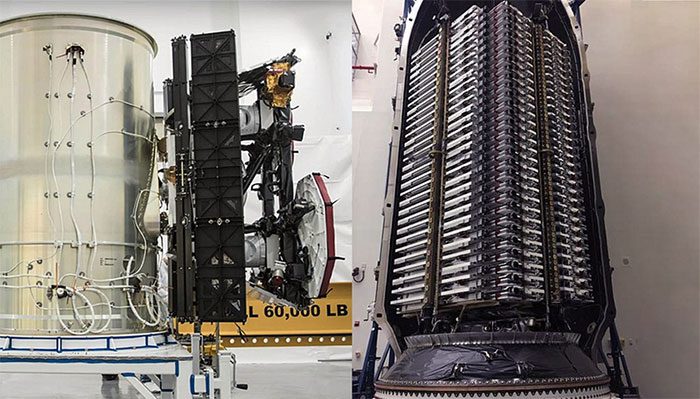The CEO of OneWeb has announced that the company has successfully launched a total of 616 satellites into orbit this year to provide global Internet coverage.
In an age where everything relies on the Internet, users need a stable connection. Starlink, founded by billionaire Elon Musk, aims to provide satellite Internet access to millions living in remote areas.
Although Starlink currently leads the race in satellite Internet services, it faces a formidable competitor – OneWeb, based in the United Kingdom. This company reportedly successfully launched its first satellite at the beginning of 2019.

The satellite Internet service race has a new player. (Image: OneWeb).
Starlink’s Competitor
Recently, OneWeb launched its final 36 satellites, completing its total of 616 satellites aimed at providing global broadband coverage this year. The company is considered a direct competitor to Elon Musk’s Starlink.
“This is the result of many challenges we have faced. Among these, the company has had to overcome geopolitical obstacles, which means we have demonstrated our resilience and ability to catch up,” said CEO Neil Masterson in an interview before the launch at the Indian Space Research Organisation.
Masterson indicated that OneWeb now has enough satellites in orbit to provide broadband services to businesses and government customers in 48 U.S. states by May, with aspirations for global coverage by the end of 2023.

The Soyuz rocket launched 36 OneWeb satellites into orbit from Vostochny Cosmodrome in March 2021. (Image: BBC).
The launch took place in Sriharikota, an island off the coast of Andhra Pradesh in southern India, marking the end of a tumultuous decade for the space venture founded by entrepreneur Greg Wyler.
OneWeb filed for bankruptcy in March 2020 after being cut off from credit markets due to the economic crisis stemming from the Covid-19 pandemic, and was subsequently “rescued” by the UK government and Indian telecom tycoon Sunil Mittal’s Bharti Group.
Since then, the company has attracted additional investors from around the world, including Japan’s SoftBank Group, South Korea’s Hanwha Systems, and U.S.-based Hughes Satellite Systems.
Another major shareholder, French satellite company Eutelsat SA, agreed to merge with OneWeb in July 2022, pending legal procedures and shareholder votes. This joint venture is vying for a role in the European Union’s billion-euro satellite project named “IRIS².”
Masterson stated that OneWeb has $900 million in contracted revenue and plans to successfully recover capital by 2025. The London-based company has also begun planning the launch of its second satellite constellation with hundreds of more advanced satellites. This project could cost up to $4 billion and is expected to be operational by 2028.
The Space Race
The launch of OneWeb’s satellites marks a significant milestone in the new space race aimed at covering the Earth with thousands of low Earth orbit satellites providing broadband. This has opened up a competitive landscape among the giants in the field.
OneWeb’s network is considered the second-largest low Earth orbit (LEO) satellite system after Starlink. Starlink’s fleet is operated and launched by billionaire Elon Musk’s Space Exploration Technologies Corp (SpaceX), with over 3,000 satellites in orbit.

60 Starlink satellites placed in a Falcon rocket. (Image: SpaceX).
Another tech giant, Amazon, is also planning to compete in the space race with its “Kuiper” project.
However, CEO Masterson denied that his company is competing with SpaceX. He stated that Musk’s company targets consumers, while OneWeb’s customer base consists of businesses and governments.
He himself is also a customer of SpaceX. OneWeb has utilized Elon Musk’s rockets to launch its own satellites after a launch with the French company Arianespace SA was postponed during the conflict between Russia and Ukraine that erupted a year ago.





















































